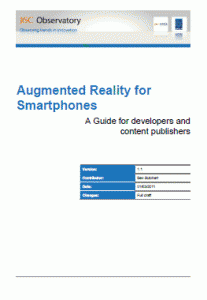Can you remember when mobiles were all about making phone calls? These days mobiles can do it all…
Consideration for the mobile Web is becoming an increasingly important area for HE and FE institutions and we’d be fools to ignore it at this year’s IWMW.
At previous IWMW events the topic has been introduced (e.g. 2009′s The Mobile Web: keep up if you can! facilitated by Sharon Steeples, University of Essex and 2010′s Mobile Apps vs Mobile Web originally written by Anthony Doherty but presented by Mike Nolan, Edge Hill University and Mark Power, CETIS) and institutions have showcased their applications and approaches (e.g. 2010′s plenary on Mobile Web and Campus Assistant given by Damian Steer from ILRT, University of Bristol and Stylesheets for mobile/smartphones facilitated by Helen Sargan, University of Cambridge.)
It now seems that institutions are after much more specific advice.
Mark Power’s recent briefing paper Mobile Web Apps is a good example of the useful guidance now needed.
With the growth and constant shift in the mobile space institutions could be forgiven for feeling a little lost as to how to best tackle the issue of delivering content and/or services that are optimised for mobile devices. Apple, Android, Blackberry, Windows Phone…app ecosystems seemingly everywhere you turn and each requiring different development approaches; SDKs, programming languages, approval processes and terms & conditions. I think it’s fair to say that for institutions, looking to deliver to mobile devices while being as inclusive as possible, this area is something of a minefield.
Brian Kelly has written a recent blog post on Institutional Strategies for the Mobile Web which highlights a survey on Institutional Use of the Mobile Web being carried out by UKOLN and CETIS, the JISC-funded Innovation Support Centres.
This year IWMW offers two parallel workshops that will aid institutional web managers in making the right choices for their university.
In Accessibility, Inclusiveness and the Mobile Web Richard Prowse and Sharon Steeples will look at issues around open and proprietary standards in the mobile arena. They will make suggestions about sensible approaches that will ensure that Web managers do not get hit in the browser battles.
 In Augmented Reality on Smart Phones Ben Butchart from Edina, based at the University of Edinburgh, will share many of the lessons learnt when writing his AR report for the JISC Observatory. Ben explains that thanks to advances in smartphone technology, augmented reality has escaped from the lab and is able to reach a wide audience for the first time. A new class of AR “browsers” and tools for authoring and hosting content makes it possible for almost anyone to create augmented reality learning experiences. As an emerging technology, the industry lacks standards and the landscape is constantly changing. His session will help developers and content publishers navigate this confusing landscape and experiment with AR for the first time.
In Augmented Reality on Smart Phones Ben Butchart from Edina, based at the University of Edinburgh, will share many of the lessons learnt when writing his AR report for the JISC Observatory. Ben explains that thanks to advances in smartphone technology, augmented reality has escaped from the lab and is able to reach a wide audience for the first time. A new class of AR “browsers” and tools for authoring and hosting content makes it possible for almost anyone to create augmented reality learning experiences. As an emerging technology, the industry lacks standards and the landscape is constantly changing. His session will help developers and content publishers navigate this confusing landscape and experiment with AR for the first time.
In Ben’s session delegates will compare the set of AR browsers targeting smartphones and look at tools for helping content providers to publish their material. We’ll also discuss the limitations and potential pitfalls associated with this nascent medium. Both technical and social issues with current smartphone AR offerings could lead to disillusionment once the initial “wow” factor fades. Delegates will look at the user experience patterns and the issues for social interaction they can cause. As well as Ben talking, there will be discussions and some practical demonstrations are planned.
Alongside the mobile Web sessions there are likely to be even more ways you can learn about what your mobile can do for you. Look out for some games and surveys that will show you that it’s more than just a hand warmer!
